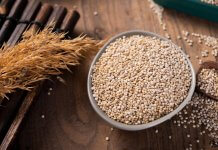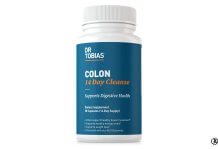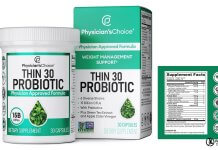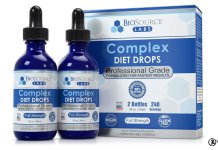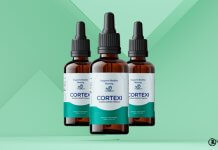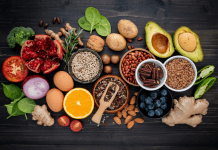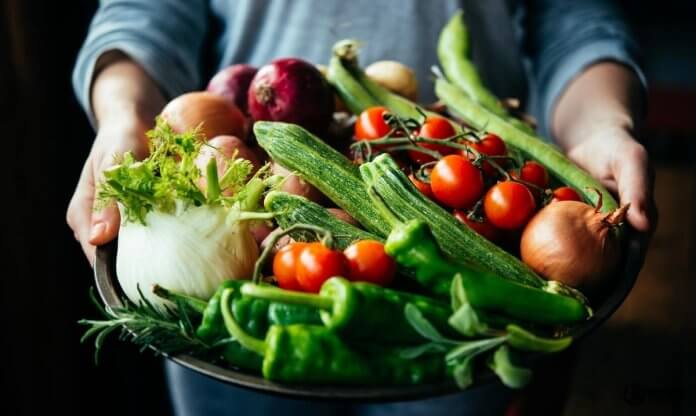I get commissions for purchases made through links on the site. As an Amazon and Clickbank Associate I earn from qualifying purchases. Learn more.
Vegetables are edible parts of the plant, including roots, leaves, bulbs, flowers, tubers, stalks, etc. They’re loaded with immune-boosting antioxidants, fiber, vitamins, and minerals. Incorporating vegetables into your diet will play a significant role in improving your health and wellbeing. Vegetables are flavorful, filling, and perfect for an array of dishes, including sandwiches, salads, smoothies, and soups. Also, you can use them to give pasta and pizza a nutritious twist. Certain vegetables may offer more health benefits to people, depending on their overall health, diet, and nutritional needs. Increased consumption of veggies will reduce your risk of developing chronic health issues, such as certain cancers, diabetes, and heart disease. Although all types of vegetables are healthy, some are a great supply of nutrients as well as powerful health benefits. Below is the list of healthiest vegetables for your diet:
Table of contents
Estimated reading time: 9 minutes
- Organifi Green Juice – The Organifi Green Juice is a full-spectrum nutrition drink that helps you lose weight, build muscle, and restore your energy. This is a detailed review.
Weight Loss and Vegetables: The Perfect Partnership
When it comes to shedding those extra pounds and achieving a healthier, slimmer you, vegetables should be your best friends. Packed with essential nutrients, low in calories, and high in fiber, vegetables play a crucial role in any successful weight loss journey. Now, we’ll explore why vegetables are a powerful ally in your weight loss efforts and how to make the most of them in your diet.
The Nutrient-Rich Nature of Vegetables
Vegetables are a nutritional goldmine. They are abundant in vitamins, minerals, and antioxidants that are vital for your overall health. These nutrients provide the necessary support to your body as you embark on your weight loss adventure. Here are some key nutrients found in vegetables and their roles in weight management:
- Fiber: Vegetables are a fantastic source of dietary fiber, which helps you feel full and satisfied. This reduces your overall calorie intake and curbs unhealthy snacking.
- Vitamins and Minerals: Vegetables provide essential vitamins like vitamin C, which boosts your immune system, and minerals like potassium, which helps regulate blood pressure.
- Antioxidants: Antioxidants, such as beta-carotene and flavonoids found in vegetables, combat oxidative stress, which can be a roadblock in your weight loss journey.
Vegetables as Meal Staples
Incorporating vegetables into every meal can transform your weight loss journey. Here are some tips:
- Salads: Start lunch and dinner with a big salad loaded with colorful vegetables. Use vinaigrette dressings sparingly.
- Veggie-Based Snacks: Swap out chips and cookies for veggie sticks with hummus or Greek yogurt dip.
- Stir-Fries: Create flavorful stir-fries with a variety of vegetables, lean proteins, and healthy sauces.
- Smoothies: Add leafy greens like spinach or kale to your morning smoothie for an extra nutrient boost.
- Replace Carbs: Experiment with cauliflower rice, zucchini noodles, or spaghetti squash as alternatives to carb-heavy sides.
Vegetables are your secret weapon in the battle against excess weight. They provide essential nutrients, fill you up without adding extra calories, and support your overall health. Make vegetables a prominent part of your daily diet, and you’ll not only see the numbers on the scale drop but also enjoy improved well-being.
Remember, the road to weight loss is not about deprivation but about making smart, sustainable choices. And including a colorful array of vegetables in your diet is one of the smartest choices you can make for your health and your waistline.
Healthiest Vegetables For Your Diet
Broccoli
Broccoli contains healthful compounds, including byproduct sulforaphane and glucosinolate. Based on science, sulforaphane properties in broccoli can reduce the risk of certain cancers. In addition, cruciferous veggies can lower the risk of various health issues. For instance, increased broccoli consumption is associated with a reduced risk of heart disease. This is because it decreases the levels of inflammation markers in the body. Broccoli is a great source of manganese, potassium, folate, vitamin K and vitamin C.
Spinach
Spinach is among the most nutrient-dense vegetables. It’s rich in many nutrients, including magnesium, potassium, folate, vitamin K, vitamin C, and vitamin A. In addition, it’s a great source of fiber and oxalate. Consuming spinach will boost your immune system, thus lowering the risk of diseases. Scientifically, spinach is high in lutein and beta carotene. These antioxidants play a vital role in decreasing the risk of cancer. Also, some studies show that spinach reduces blood pressure, thus enhancing heart health.
Kale
Kale is a nutrient-dense leafy vegetable. It’s loaded with various nutrients and vitamins, including vitamin A, potassium, vitamin B, copper, vitamin C, calcium, and vitamin K. Consuming kales can help you manage your blood sugar. This can lower your risk of developing type 2 diabetes. Drinking kale juice will decrease cholesterol, blood pressure, and blood sugar levels in the body. Also, kale is a great source of powerful antioxidants, such as kaempferol and quercetin. Antioxidants play a significant role in counteracting oxidative damage, which occurs as a result of free radicals in the body. According to studies, oxidative damage is among the leading causes of some cancers and aging. Therefore, kaempferol and quercetin have anti-cancer, anti-inflammatory, anti-depressant, and anti-viral effects.
Garlic
Since the beginning, garlic has been used for medicinal purposes. Based on science, its main compound is allicin. Allicin aids heart health and blood sugar. Consuming garlic will decrease the triglycerides levels and eliminate belly fat. Garlic powder can improve insulin resistance, thus preventing type 2 diabetes. Below are other benefits of consuming garlic:
- Prevent Dementia and Alzheimer’s disease
- Boosts immune system
- Has antibiotic properties
- Enhances athletic performance
- Reduces the risk of inflammation
- Protect against oxidative stress
- Lower the risk of cardiovascular problems
Some of the nutrients of garlic are fiber, vitamin C, sodium, zinc, and protein. According to some studies, allicin has cancer-fighting properties.
Onions
Onions are great sources of manganese, calories, vitamin B6, and vitamin C. In addition, they contain sulfur compounds which may help lower the odds of developing cancer. The antioxidants in onions will reduce cholesterol levels and decrease triglycerides. This will reduce the risk of heart disease. In addition, the anti-inflammatory properties of onions will prevent blood clots and reduce high blood pressure.
Carrots
Carrots are packed with vitamin C, potassium, vitamin A, biotin, iron, vitamin K, lutein, and calcium. Many people incorporate carrots into their diets to add flavor. In some instances, you can eat them as snacks. Carrots can aid weight management, lower cholesterol, and improve eye health. Also, carrots will reduce the risk of lung cancer and colorectal cancer. Beta-carotene antioxidants will play a major role in preventing cancers.
Brussels Sprouts
Brussels sprouts are categorized as cruciferous vegetables. They contain kaempferol antioxidants which prevent cell damage. Based on research, kaempferol has cancer-fighting and anti-inflammatory properties, lowering your risk of developing chronic diseases. Brussels sprouts are a great source of fiber. Fiber controls blood sugar levels, supports bowel regularity, and enhances heart health. Some of the nutrients of brussels sprouts are vitamin A, potassium, vitamin C, magnesium, vitamin K, folate, etc. Some of the cancers that brussels sprouts will prevent include prostate, kidney, stomach, bladder, breast, and lung cancer.
Asparagus
Asparagus are great sources of selenium, vitamin B (riboflavin and thiamin), folate, and vitamin K. It helps the liver get rid of toxic substances. Glutathione facilitates the detoxification process whereby the toxins are removed from the body via bile or urine. Adequate levels of glutathione in the body will reduce muscle pain, boost immune function, enhance sleep quality, and improve energy.
- 14 Day Rapid Soup Diet – With the Rapid Soup Diet, you will feel full for a long time with fewer calories than you ever thought possible. The rapid soup detox diet also detoxifies your lymphatic system, allowing your body to clean itself properly, and boosts your metabolism.
Green Peas
Peas have more calories and carbs. Therefore, they are termed as starchy vegetables. Consuming more peas can have adverse effects on your blood sugar levels. Green peas are nutrient-dense. Some of the nutrients that they’ll provide are vitamin A, niacin, vitamin C, thiamine, vitamin K, riboflavin, folate, and proteins. In addition, green peas are high in fiber, which promotes regular bowel movements and supports overall digestive health. Saponins compound of peas can reduce your odds of developing certain cancers. This is because saponins will kill cancer cells and reduce tumor growth.
Sweet Potatoes
Sweet potatoes have impressive health benefits. Some of the nutrients of sweet potatoes include manganese, protein, fiber, vitamin B6, potassium, and vitamin C. They’re root veggies with high beta carotene, which the human body converts into vitamin A. Consuming vegetables rich in beta-carotene will lower your risk of developing certain cancers, such as lung cancer. Various studies show that sweet potatoes can regulate cholesterol and blood sugar levels.
Cauliflower
There are two aspects that make cauliflower a healthier vegetable: its stellar nutrient profile and versatility. Some of the nutrients that you’ll find in cauliflower are vitamin C, folate, magnesium, phosphorous, potassium, and vitamin K. Also, it contains isothiocyanates and glucosinolates compounds. These compounds are effective in fighting certain cancers. You can use cauliflower as a low-calorie alternative to various ingredients, including flour, rice, and potatoes.
Red Cabbage
Red cabbage can be categorized as a cruciferous vegetable. Some of the nutrients of red cabbage are sodium, vitamin B6, iron, vitamin C, magnesium, potassium, and dietary fiber. It’s a great source of anthocyanin compounds, which are associated with various health benefits. Microgreens in red cabbage can help in managing weight and lowering the levels of bad cholesterol.
Beets
Regular consumption of beets can manage blood pressure levels. Based on science, beets can enhance liver health, thus reducing the risk of inflammation and oxidative damage. Some of the nutrients that beets offer are potassium, folate, vitamin A, manganese, and vitamin C. Below are other health benefits of eating beetroots:
- Reduce the risk of stroke
- Prevent heart disease
- Increase stamina
If you’ve had kidney stones, avoid beetroots. This is because they’re high in oxalates, which can increase your risk of developing kidney stones.
Leeks
Leeks are nutrient-dense. Based on science, leeks can improve skin, gut, immune system, eyes, and heart health. Regular consumption of leeks will lower your odds of developing certain cancers, including gastric cancer and breast cancer. Leek is an excellent source of magnesium, vitamin C, iron, vitamin B6, dietary fiber, and potassium.
Alfalfa Sprouts
Alfalfa sprouts contain vitamin K, copper, vitamin A, iron, calcium, vitamin C, potassium, phosphorous, pantothenic acid, riboflavin, thiamin, and manganese. Traditionally, alfalfa sprouts were used to treat kidney problems and arthritis. Scientifically, consuming alfalfa sprouts will improve your heart health.
Frequently Asked Questions (FAQs)
There are various causes of belly fat, including stress, genetics, poor diet, alcohol consumption, poor sleep, and lack of exercise. Excess belly fat can increase your risk of health problems, such as liver problems, heart disease, and diabetes. Incorporating healthy vegetables into your diet will help you burn excess belly fat. Vegetables are great sources of fiber and other nutrients, which will boost metabolism, thus reducing your weight and belly fat.
The nutrient content of frozen or canned vegetables depends on the type of processing and the produce. Fresh vegetables have more nutrients, unlike frozen vegetables. Based on research, canning vegetables can preserve nutrients more effectively than refrigeration. Home cooking will lower nutrients further because of the heat.
Freshly squeezed juices and smoothies are popular with both kids and adults. Juice from extractors lacks some nutrients and fiber that are destroyed during the processing stage. A lack of fiber in smoothies and juices can increase blood sugars. In addition, higher consumption of juices is associated with weight gain. Therefore, eating whole vegetables is healthier than drinking smoothies and juices.
- Daily Greens – Organic Superfood Powder Formula – The 34 organic superfoods and the presence of 11 extracts and herbs in the Daily Greens powder make it the worlds’ super healthiest food for health lovers.
Conclusion
There are various healthiest vegetables, including onions, kales, spinach, asparagus, Brussels sprouts, carrots, garlic, broccoli, etc. A diet rich in vegetables can reduce the risk of stroke and heart disease, lower blood pressure, lower the risk of digestive and eye problems, prevent certain cancers, and manage weight.






